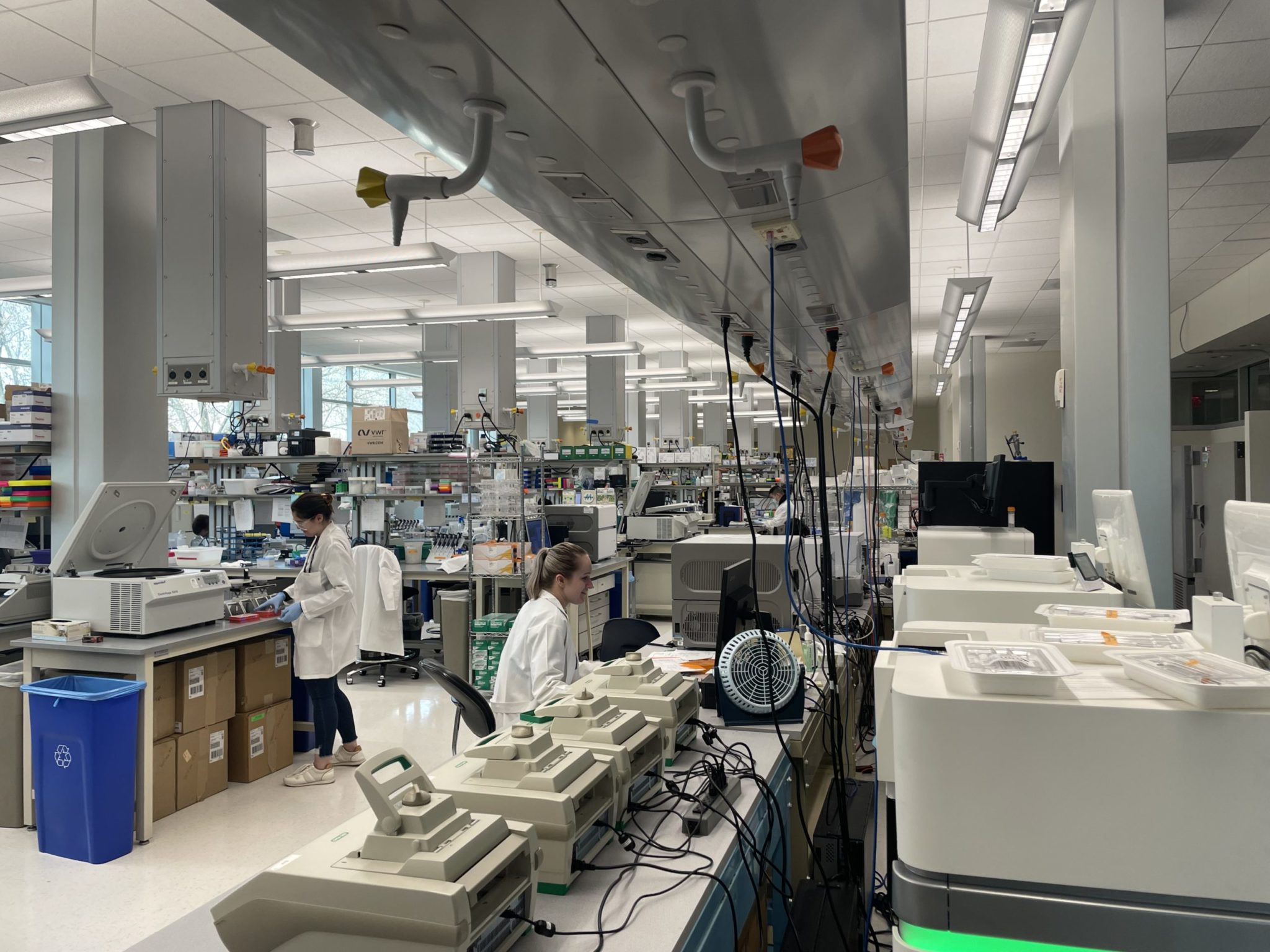A look inside the Yale lab sequencing local COVID-19 cases
Working with Nathan Grubaugh, scientists at the Yale Center for Genomic Analysis are on the front lines of the fight against COVID-19.

Yash Roy, Contributing Photographer
Due to the disruptive nature of the pandemic, Yale’s Center for Genomic Analysis has taken on the responsibility of sequencing samples from positive COVID-19 cases in the Yale and southern Connecticut community.
The YCGA is at the forefront of genomic testing within the state and the nation, providing doctors at the Yale New Haven Health system with targeted information regarding plans for the treatment of patients with cancer and autoimmune disease. The Center houses Nate Grubaugh’s lab, which currently specializes in a Yale SARS-CoV-2 surveillance initiative. The initiative is responsible for the sequencing of approximately 10 percent of the COVID-19 tests, currently translating to about 190 tests, within the Yale New Haven Hospital system every week.
“We didn’t create the weekly sequencing routine until January 2021,” Grubaugh said. “Then we really started to ramp up our efforts …we were able to capture sort of the heyday of variants, which was the spring of 2021 when there were alpha, beta, gamma, theta, iota, epsilon, and then we captured Delta taking over in the summer, and then obviously Omicron this past winter.”
Grubaugh said he first worked with Yale epidemiology researcher Anne Wyllie on the SalivaDirect project. During that process, his lab split off and began to work on genomic testing as it became apparent that sequencing positive samples would be necessary to effectively combat COVID-19.
Grubaugh’s lab also worked with the NBA and NFL to sequence the SARS-CoV-2 virus to aid both leagues in gaining a deeper understanding of transmission within their facilities.
“Before the emergence of variants it was more about looking at patterns of spread and an outbreak investigation,” said Grubaugh. “That changed when alpha emerged in the UK in late 2020. And it was pretty clear that this was going to hit the U.S. and we did not have a systematic program to monitor for emerging SARS-CoV-2 variants.”
According to Grubaugh, during the beginning stages of sequencing in Connecticut, his lab and Yale were the primary sequencers of the virus. In recent months, however, the CDC has overtaken his lab in sequencing within the state.
Grubaugh told the News that to sequence, his lab analyzes about 30,000 nucleotides of information and turns them into strings of letters and numbers with the Pangolin computer program. The data is then uploaded to both his lab’s website as well as a weekly Thursday twitter thread where he provides updates on which strains of the virus are dominant in southern Connecticut.
“Every Friday we receive samples from Nate’s lab,” said Bony De Kumar, director of operations of the Yale Center for Genome Analysis. “We then sequence them and give results back to Nate’s lab by Wednesday. And they analyze and report those sequences. And so all the variant detections, like is it Omicron or is it Delta.”
The YCGA has three different sequencers, two that provide 8.8 billion readings when run for a 48-hour cycle, and another sequencer that sequences larger chunks of genomic code.
De Kumar told the News that YCGA can produce up to 27 terabytes of information per week, including the COVID-19 sequencing data.
“The Yale Center for Genome Analysis is a full service facility dedicated to providing RNA expression profiling,” said the YCGA website. “DNA genotyping, and high-throughput sequencing uses state of the art technologies, and the resource is open to both Yale and other non-profit organizations.”
Recently, more than half of the samples have been identified as the newer strain of the Omicron variant, B.A. 2.







